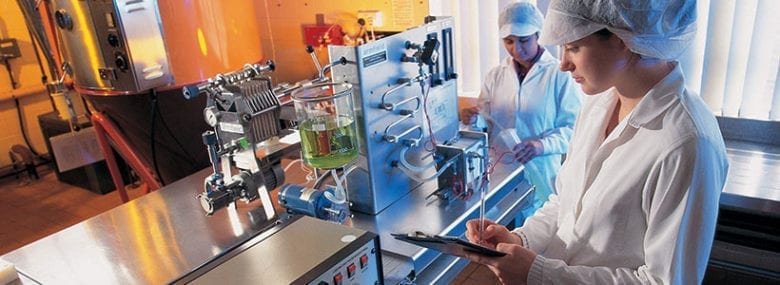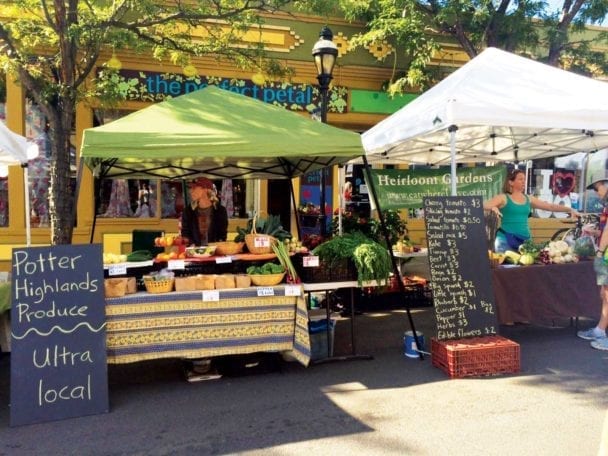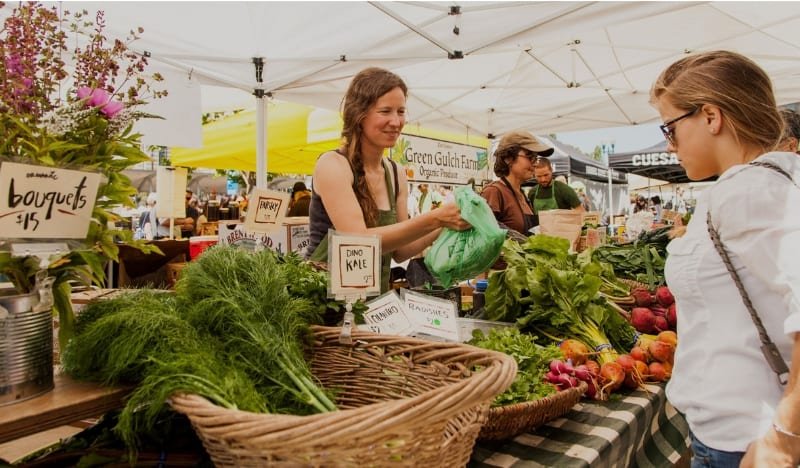Large-chain supermarkets are an anachronism and should be consigned to the dustbin of history. They are purveyors of low-quality produce and industrially made “edible food-like substances” that are harming people en masse and should be rejected by anyone concerned with their health and the future of Australia’s agricultural infrastructure.
These chains (a notable exception being Harris Farm) are large corporations concerned exclusively with profit.
It’s all so cheap and nasty: the spaces are little more than warehouses illuminated by migraine-inducing fluorescent lighting. The shopper has to plough through the noise pollution of terrible, decades-old pop music, interspersed with obnoxious selfcongratulatory commercials beseeching you to buy things you don’t need; and all in an environment designed carefully to push you into making junk food impulse purchases.
In the dreaded middle aisles, rickety shelving upon which are selections of ‘edible substances’, none of which you could actually categorize as food, appears in seemingly endless rows. Sugar laden, highly addictive junk food replete with noxious inflammatory chemicals and oils ingeniously designed to trick the brain into believing that what it mimics is what it is. Strawberry flavoured yogurt contains no strawberries!
The large supermarket chains (don’t make me call your names out!) are purveyors of toxic substances masquerading as food. How is this still legal, let alone acceptable in the 21st century?
In his remarkable book, ‘The Dorito Effect’, author and researcher Mark Schatzker breaks down the Synthetic Flavour Industry’s dirty little secrets. He explains that there is carefully calculated ‘brain trickery’ “involving a process called ‘nutritional decapitation’, where flavours from nature are artificially manufactured by breaking them down into their chemical constituents using a gas chromatograph and a mass spectrometer.” This allows food chemists working on behalf of big business “to capture the experience of food but leave the nutrition – the fibre, the vitamins, the minerals, the antioxidants, the plant secondary compounds – behind.

In nature, flavour compounds appear in a nutritional context”. There is an unscrupulous cognitive deception at play where “fake flavours fool the conscious mind. A mother who provides a strawberry blitz yogurt for her eight year old child will taste it and reasonably believe the product contains strawberries, even though it contains none”. This is a very deliberate emotional deception: “Flavour technology manipulates the part of the mind that experiences feelings. Fake flavours take a previously established liking for a real food and apply it, like a sticker, to something else – usually, large doses of calories – creating a heightened and nutritionally undeserved level of pleasure”. This flavour-nutrient confusion is achieved by hijacking flavour-nutrient relationships. Fake flavours, by their very nature, set a false expectation.

A major aspect of obesity is an outsized desire for food, one that very often cannot be extinguished by food itself. “By imposing flavours on foods without the corresponding nutrients”, Schatzker rightly asks, “are we creating foods that are incapable of satiating the people who eat them? So many of the foods we overconsume – refined carbs, high fructose corn syrup, sugar, added industrially – made fat – would not be palatable without synthetic flavour”. We gorge on them because they taste like something they are not. Even the supermarket produce section contains fruits and vegetables of the lowest quality. These large companies are interested in returns to their investors, not your health. So they squeeze primary producers to breaking point, who are then forced to cut corners on quality.
Sample their artificially ripened tomatoes and what you get is a tasteless shell of its potential, devoid of nutritional content. The perfect archetype for supermarket produce, and perhaps a fitting metaphor for much of modern Americanised Western culture: Image over substance. Attractive Alternatives Emerging from an early morning spin class into the crisp morning sunshine, we arrive at our local produce market, kids happily in tow.

It’s their job on this occasion to choose the juiciest organic tomatoes they can find for our bolognese sauce. It’s an important job and they take it with the appropriate level of seriousness, each in turn asking the grower questions about the fare he has on offer. I want them to understand the connection between the grower, the produce and what ends up on their plate. After considered selections are made, we discuss how personal and fun it is to talk to producers directly. Already our collective anticipation of the preparation and cooking of the evening meal is brewing. As we wander over to speak with Richard, our butcher, and survey his selection of sumptuous grass fed meats, I ruminate on the type of community I want to contribute to building: one that rewards small, localised farms, connecting directly with their customers, with a focus on quality and diversification; or one that contributes to the profits of large supermarket chains (and the low-quality, high-yield agribusiness that sustains them) whose sole focus is ‘returns to shareholders’.
My children are too young to understand such matters, but what they, my wife and I can see clearly, is that food shopping at local markets puts the quality, fun, learning and adventure back into food shopping and by extension, into food preparation and cooking. Supporting your local farmer’s market and quality butcher is better for the health of your family and to the development of your community by contributing directly towards the organisation of our farming system into one less reliant on low-quality, high-yield Agribusiness, and their paymasters: large-chain supermarkets.
For more stories by Jaymes Gleeson, click below:

- The Carousel would like to thank J. A Gleeson for this article. He is a Personal Trainer at Tribe Social Fitness, Sutherland Shire, Sydney.















